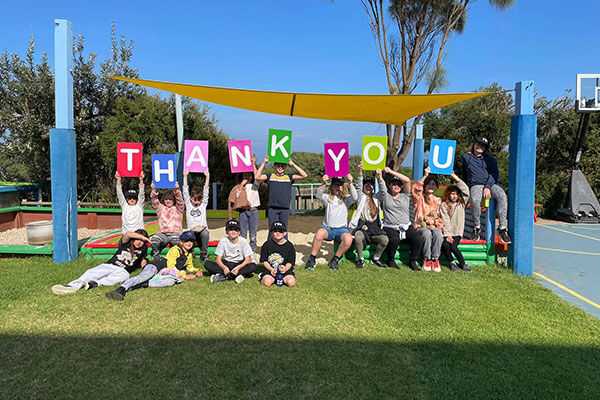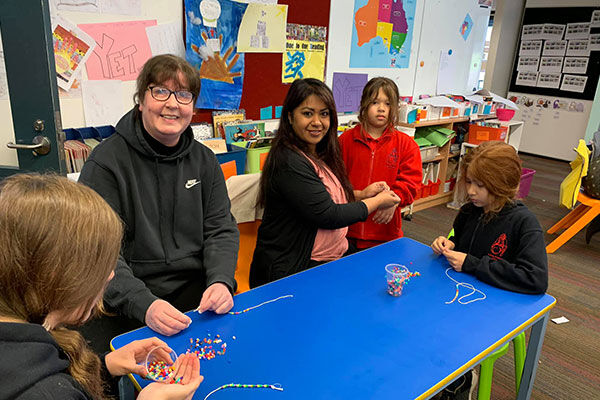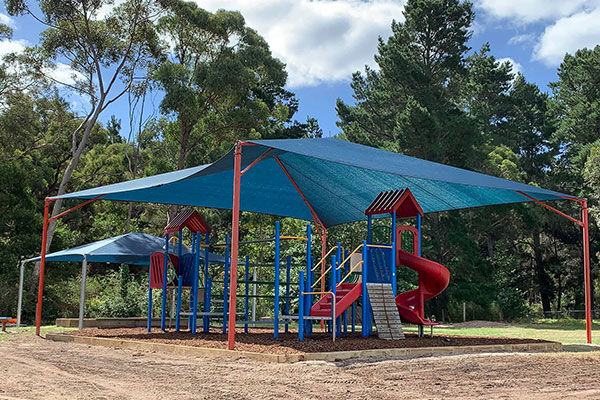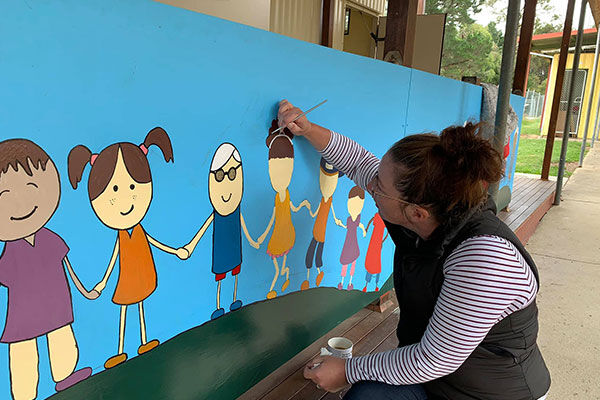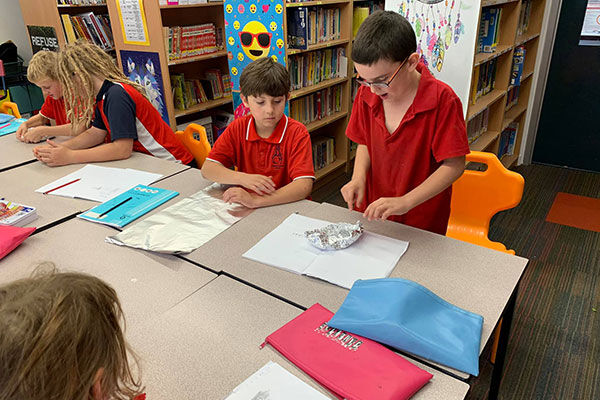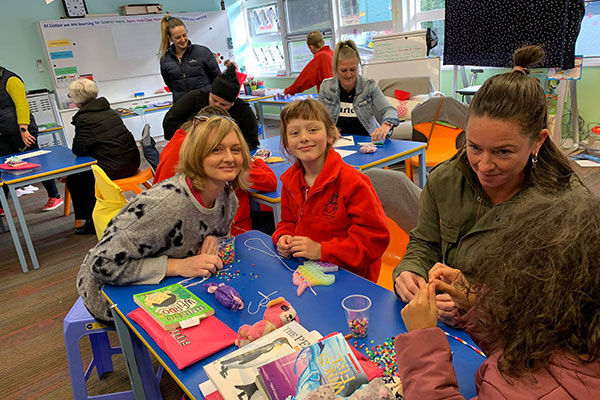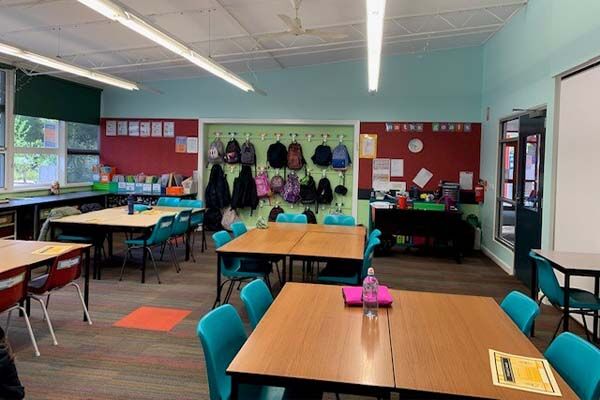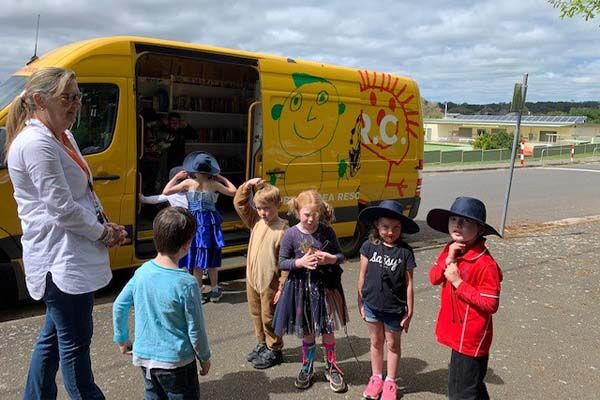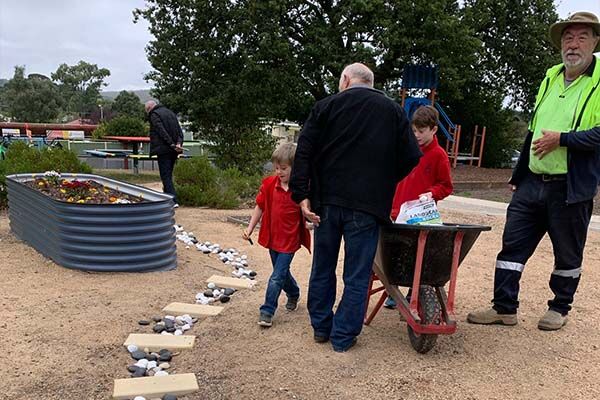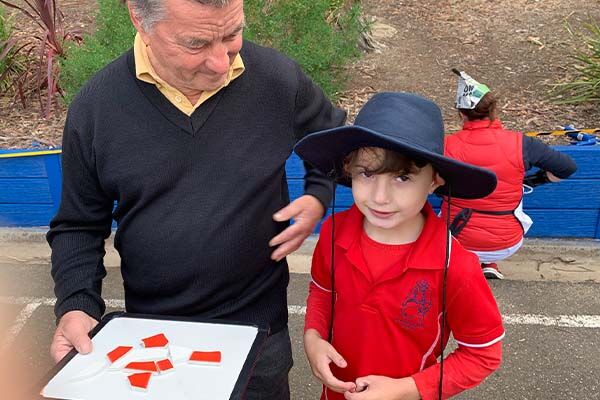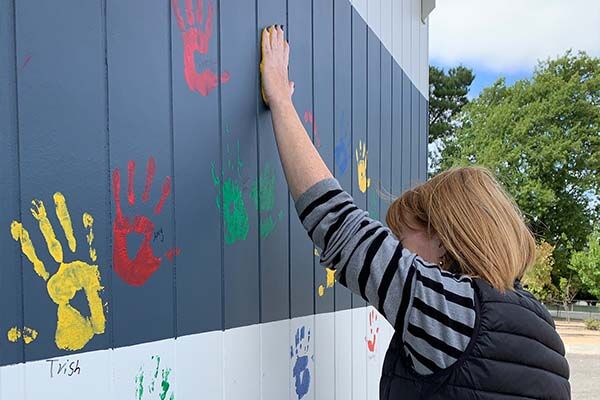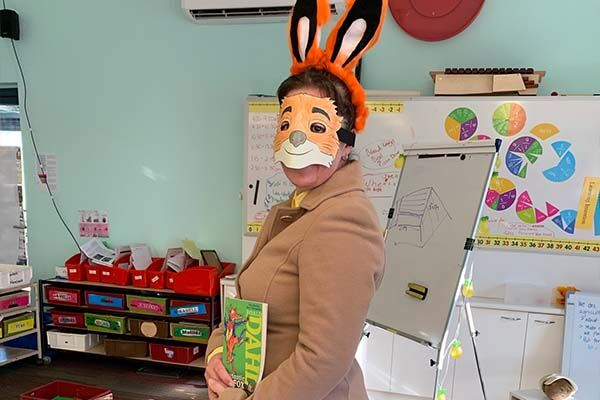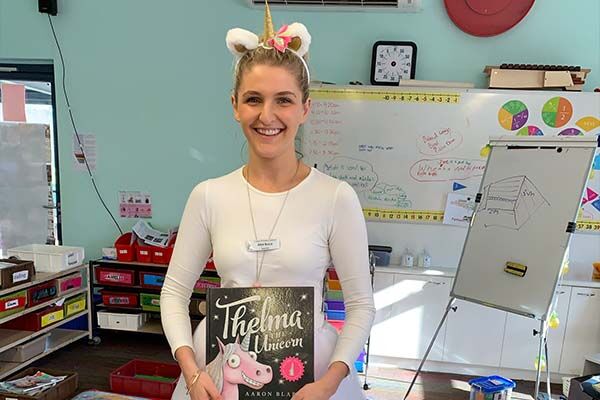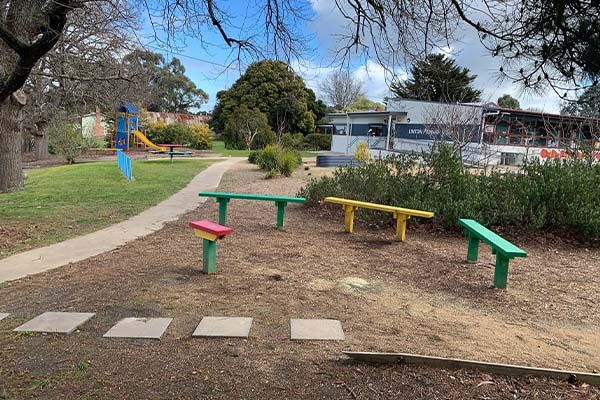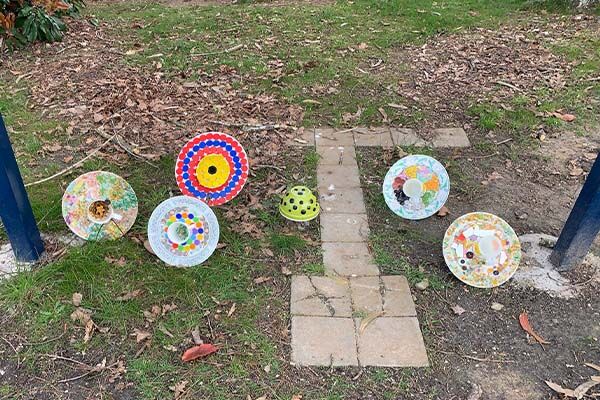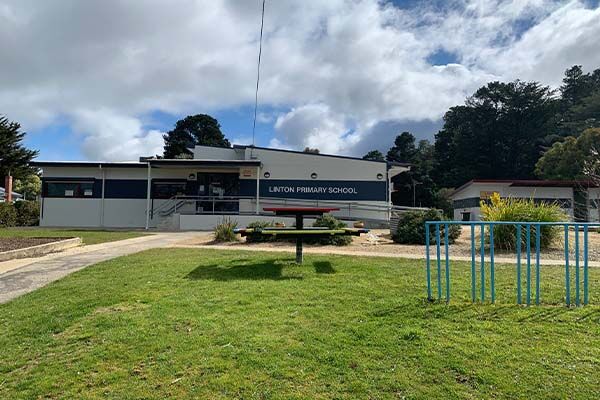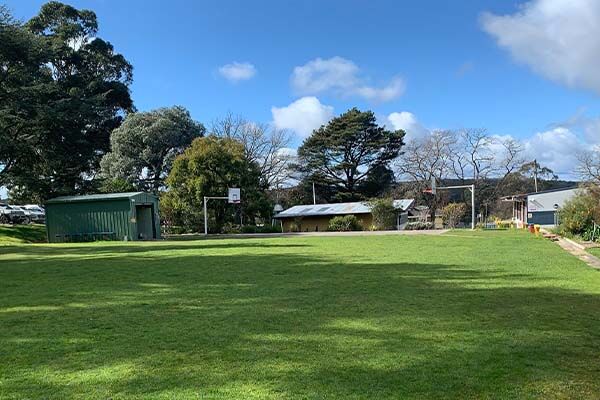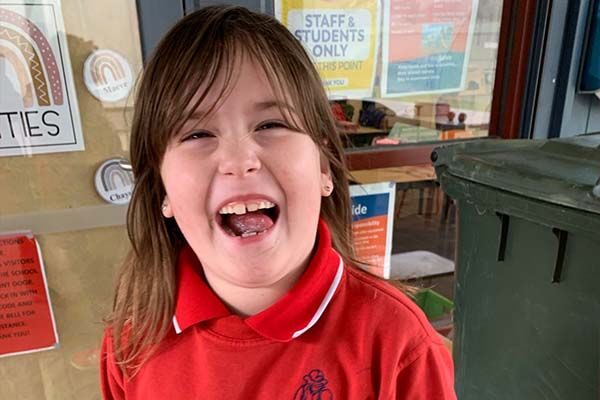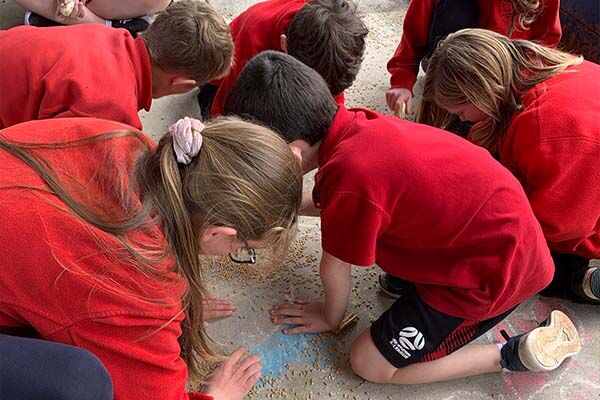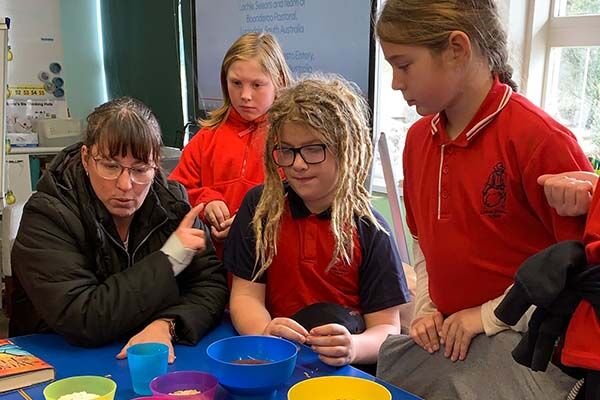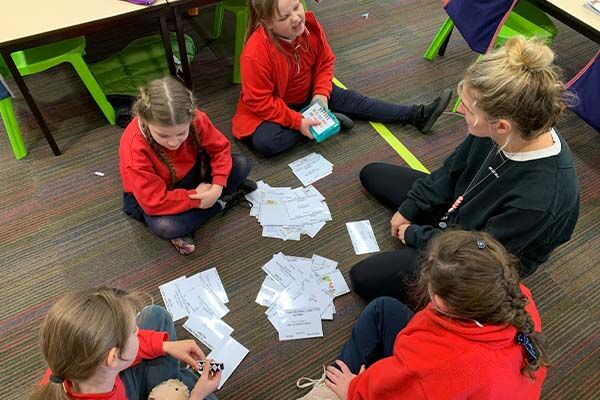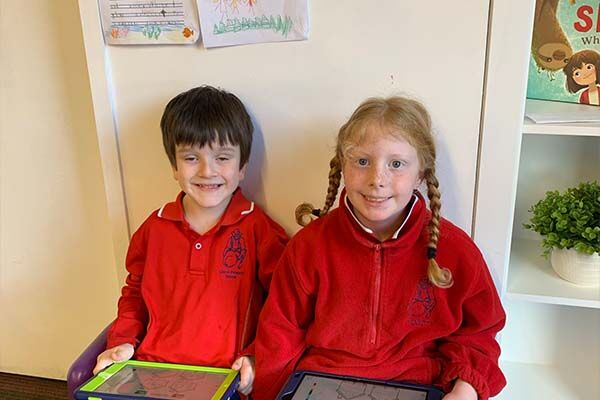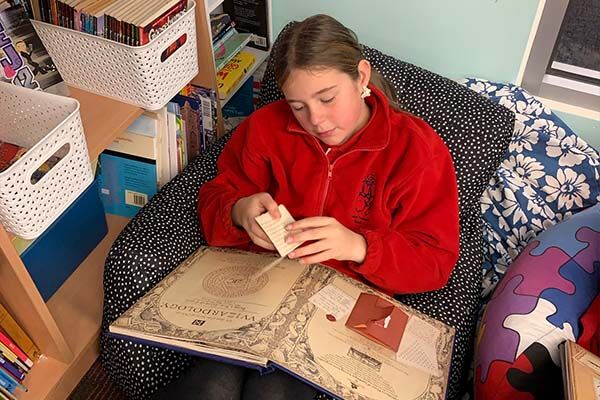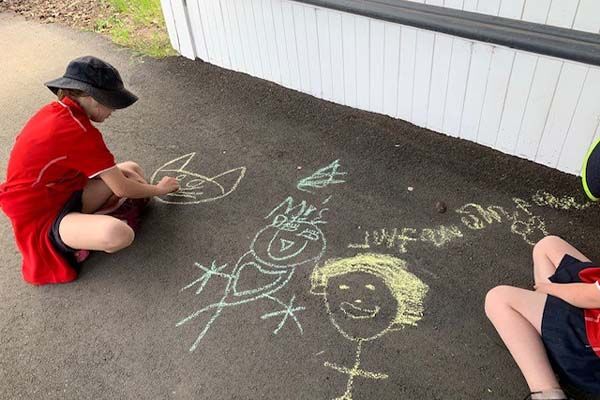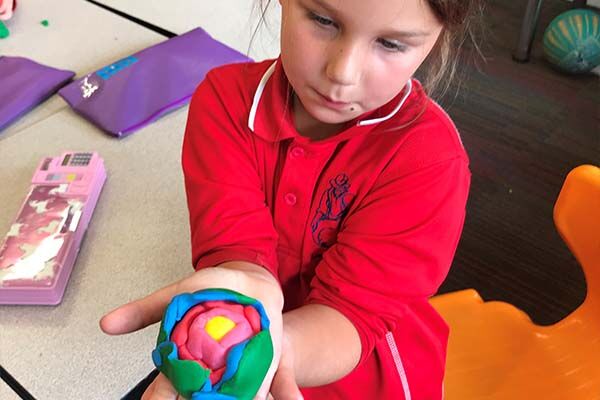Teaching & Learning
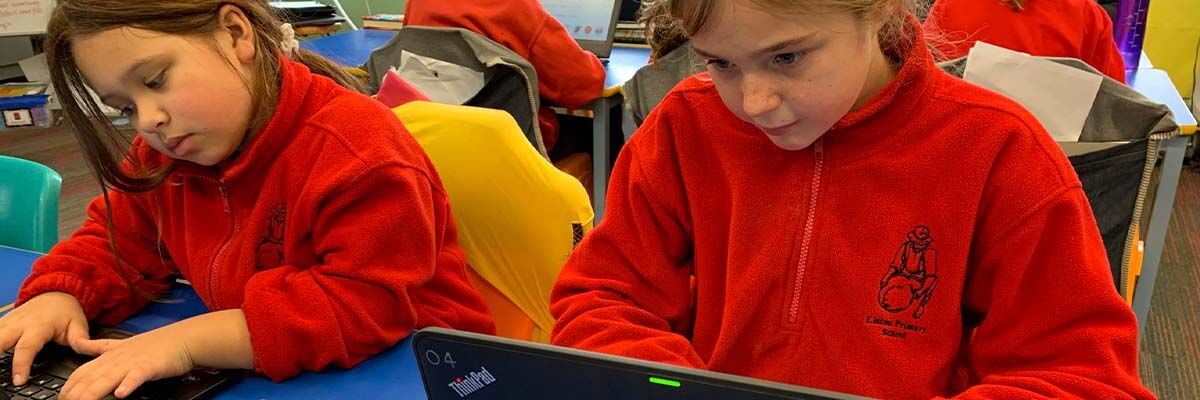
Our student's needs are at the centre of everything we do at Linton Primary School.
To read the full descriptions, please click on the areas below.
ICT
Linton Primary School has a one to one technology program, with IPads in the junior school and Notebooks in the senior school. Linton is well-resourced and technology available to students includes a large screen TV in each classroom space, Video conferencing technology (Polycom) which allows us to communicate with students and teachers from around the World.
Our staff are trained in delivering the latest learning technologies in the classroom and assessment of curriculum through the platforms of Seesaw for the junior children and Office 365 – TEAMS for the senior children.
Our students are engaged in ongoing learning about Cybersafety when exploring and using the internet at school and home. Students using IPads will access educational Apps to assist learning as well as being engaged in digital film making using their devices and video cameras. Students are supervised at all times when using their devices and all sites or programs have been screened by staff prior to student use to ensure they are appropriate. Please see our Digital Technologies Policy for further information.

Performing Arts
The Performing Arts Program at Linton Primary School strives to give students a greater understanding and appreciation of music through singing, movement and performing.
Students explore different genres of music and play a variety of percussion instruments.
Students will experience music one hour a week for a semester.
The school holds a public performance where students sing and perform to showcase their musical experiences.
Physical Education
At Linton Primary School we believe Physical Education and Sport play a key role in the well-being of students. Students arrive at school each morning by 8:50 am to participate in a 10 minute run before beginning their learning each day. All students participate in two hours a week of Physical Education classes. Students receive three hours of Physical Education activity each week.
The students at Linton Primary School are provided with opportunities to develop their fundamental motor skills which form the basis of all sports in both non competitive and competitive type situations. Emphasis is placed on students improving their physical skills and knowledge of a variety of sports in fun, engaging and energy filled experiences.
The students are provided with opportunities across the year to participate in a variety of sports such as ten pin bowling, golf, orienteering, swimming, basketball, netball and our annual athletics carnival.
Visual Arts
At Linton Primary School we offer students a stimulating visual arts program which encourages creative and imaginative ways of thinking. Students have the opportunity to express their knowledge, ideas and feelings in an individual way.
We inspire the development of a strong sense of aesthetic appreciation, skills and techniques in a range of media in all students. We aim to inspire in our students, an appreciation of all art forms.
Students will experience hands on lessons one hour each week for a semester.
Literacy
At Linton Primary School, we have high expectations that all students will reach their full potential. Literacy is about enhancing the strong links between speaking, listening, reading and writing.
Students are encouraged to read like a writer, they are exposed to real texts by real authors and write texts for a known audience with a clear understanding of the purpose. As readers, writers, spellers, speakers and listeners, students should always be encouraged to build on their prior knowledge to explore new possibilities.
We understand that Literacy learning is developmental using an oral language program as a foundation (for clarifying and reasoning) for all learning in Literacy. Our students engage in and are enthusiastic about Literacy as we encourage all students to capitalise on their personal interests for both reading and writing, whilst also branching into other areas which may interest them.
Teachers plan modelled, shared, guided, interactive, reciprocal and independent lessons which incorporate the gradual release of responsibility model and student interests. Our teachers also understand that the classroom environment must foster and motivate a student’s literacy learning and regularly provide these opportunities through visual displays, a variety of texts to read (both electronic and hard copy) and experiences where students can explore and develop interests as readers and writers.
High expectations, sound teacher knowledge, fun activities and explicit teaching of skills are paramount in our Literacy program.
Mathematics
At Linton Primary School we have a whole school approach which sets high expectations for all of our students in numeracy.
We aim to provide opportunities for our students to become numerate whilst gaining an appreciation and enjoyment of mathematics.
Our approach to the teaching of mathematics centres on engaging our students across all areas of the Victorian curriculum.
We value and promote the use of ICT within our mathematical classrooms, as well as hands on (authentic learning) and teacher modelling of explicit mathematical strategies.
Our teachers assess and monitor student achievement throughout the year in order to identify each student’s needs in Mathematics; allowing the teacher to plan for future instruction and to support their students to set learning goals.MARC Van
The Mobile Area Resource Centre (MARC Van) is a small mobile library. It visits 5 schools in the local area. The base school is Skipton Primary School, but the van also visits Cape Clear, Linton, Lismore and Rokewood Primary Schools.
The MARC van is filled with picture story books, fictional novels, and non-fiction books for students and teachers to borrow.
MARC lessons allow students to share books, discuss different aspects of the books, think critically and explore issues in greater details with an activity that is appropriate.
MARC Vans have been operating since the 1970’s. There are around 35 MARC Vans in Victoria.
MARC Vans are a part of the Department of Education and were introduced to service Rural Schools with less than 120 students to provide the opportunity to borrow books from a Library Service.
Respectful Relationships
Respectful Relationships covers such topics as Emotional Literacy, Personal Strengths, Positive Coping, Problem Solving, Stress Management, Help-Seeking, Gender and Identity and Positive Gender Relations and is delivered as a whole school approach recognizing schools as an Educational Institution, a Workplace and a Community Hub.
At Linton Primary School, our students participate in weekly lessons to unpack the Respectful Relationships topics with engaging stories, games and activities.
Science
Science at Linton Primary School is a very important and developing subject area extending Literacy, Maths, Engineering and problem solving skills, as well as complementing learning in other subject areas.
We have been fortunate to develop links with outside agencies such as Earth Ed, Bendigo Discovery and Science Centre and Ecolinc who have helped us to develop and investigate new and exciting programs.
We are developing a strong environmental theme in our school which incorporates other aspects of the Science program as outlined in the Victorian Curriculum with a vegetable garden and a newly developed rock garden.
The Science curriculum has two interrelated strands: Science Understanding and Science Inquiry Skills. Together, the two strands of the science curriculum provide students with understanding, knowledge and skills through which they can develop a scientific view of the world.
Aims
The Science curriculum aims to ensure that students develop:
- an interest in science as a means of expanding their curiosity and willingness to explore, ask questions about and speculate on the changing world in which they live
- an understanding of the vision that science provides of the nature of living things, of the Earth and its place in the cosmos, and of the physical and chemical processes that explain the behaviour of all material things
- an understanding of the nature of scientific inquiry and the ability to use a range of scientific inquiry methods, including questioning, planning and conducting experiments and investigations based on ethical principles, collecting and analysing data, evaluating results, and drawing critical, evidence-based conclusions
- an ability to communicate scientific understanding and findings to a range of audiences, to justify ideas on the basis of evidence, and to evaluate and debate scientific arguments and claims
- an ability to solve problems and make informed, evidence-based decisions about current and future applications of science while taking into account ethical and social implications of decisions
- an understanding of historical and cultural contributions to science as well as contemporary science issues and activities and an understanding of the diversity of careers related to science
- a solid foundation of knowledge of the biological, chemical, physical, Earth and space sciences, including being able to select and integrate the scientific knowledge and methods needed to explain and predict phenomena, to apply that understanding to new situations and events, and to appreciate the dynamic nature of science knowledge.

